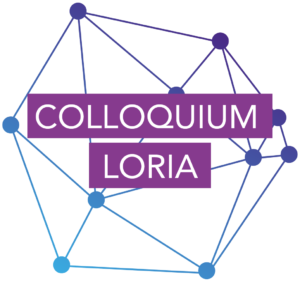[PhD Thesis] Trustworthy Learning Analytics
PhD thesis proposal: Trustworthy Learning Analyics
Research lab: LORIA (www.loria.fr), Bird Team, Université de Lorraine
Address: Campus Scientifique, 54506 Vandoeuvre les Nancy, France
Starting date: October 2021, Duration: 3 years
PhD director: Anne Boyer
Keywords: AI in education, personalization, trust AI, evaluation
PhD Objectives
Students’ interaction with Virtual Learning Environments (VLE) produce a large amount of data, known as learning traces, which are commonly used by Learning Analytics [1] to enhance the learning experience. Indeed, Learning Analytics has been defined back in 2011 for the first LAK conference as “the measurement, collection, analysis and reporting of data about learners and their contexts, for purposes of understanding and optimizing learning and the environments in which it occurs”.
Within this context, Learning Analytics tools can be designed by processing the heterogeneous, multisource and temporal data that have been collected, with datamining or machine learning techniques, to support learners in a personalized way. That is why a precise evaluation is required, not only based on algorithmic performance but also pedagogical aspects, i.e. the extent to which the use of such systems has led to an improved learning.
Besides, differences in performance according to the type of student can be highlighted, both in distance and face-to-face courses [2]. This lack of homogeneity among students is exacerbated in an online learning environment, which increases inequity. To address this issue, it is necessary to design appropriate learning systems and evaluate their impact in a personalized manner. The dissemination of Learning Analytics within educational institutions requires the design of explainable, transparent, unbiased and by-learning-expert interpretable tools. It is the reason why we intend to investigate what should be trust in learning analytics and propose a framework for developing and assessing it.
Brooks and Greer [3] defined personas as “narrative descriptions of typical learners”, and used them to explain predictive models based on demographic, entrance, and academic information. We want to generalize learner personas by basing them on student interaction data with the VLE. We plan to explore what personas defined could bring to build trust in Learning analytics, for example to 1) study the representativeness of student’s classes within a dataset; 2) identify which student profiles are present and absent within a dataset; 3) assess and benchmark online learning systems; 4) explain to learning experts the outputs of the system.
The main scientific challenge here is the design of an abstraction algorithm that relies on the mining of raw behavioral data, with a major constraint: being understood by experts of the domain. Two approaches will be investigated: a top-down (expert of the field to data) and bottom-up (data to expert). This challenge is thus at the interface of data mining challenges and human-centered AI.
References
[1]. https://dl.acm.org/doi/proceedings/10.1145/2090116
[2]. Xu, D., Jaggars, S.S.: Performance gaps between online and face-to-face courses: Differences across types of students and academic subject areas. The Journal of Higher Education 85(5), 633{659 (2014)
[3]. Brooks, C., Greer, J.: Explaining predictive models to learning specialists using personas. In: Proc. of the fourth international conference on learning analytics and knowledge. pp. 26{30 (2014)
Profile of applicant
A Master’s degree (or equivalent) in Computer Science, Cognitive science or similar is required.
Skills in Artificial Intelligence. Excellent writing, speaking, and reading skills in English and French.


